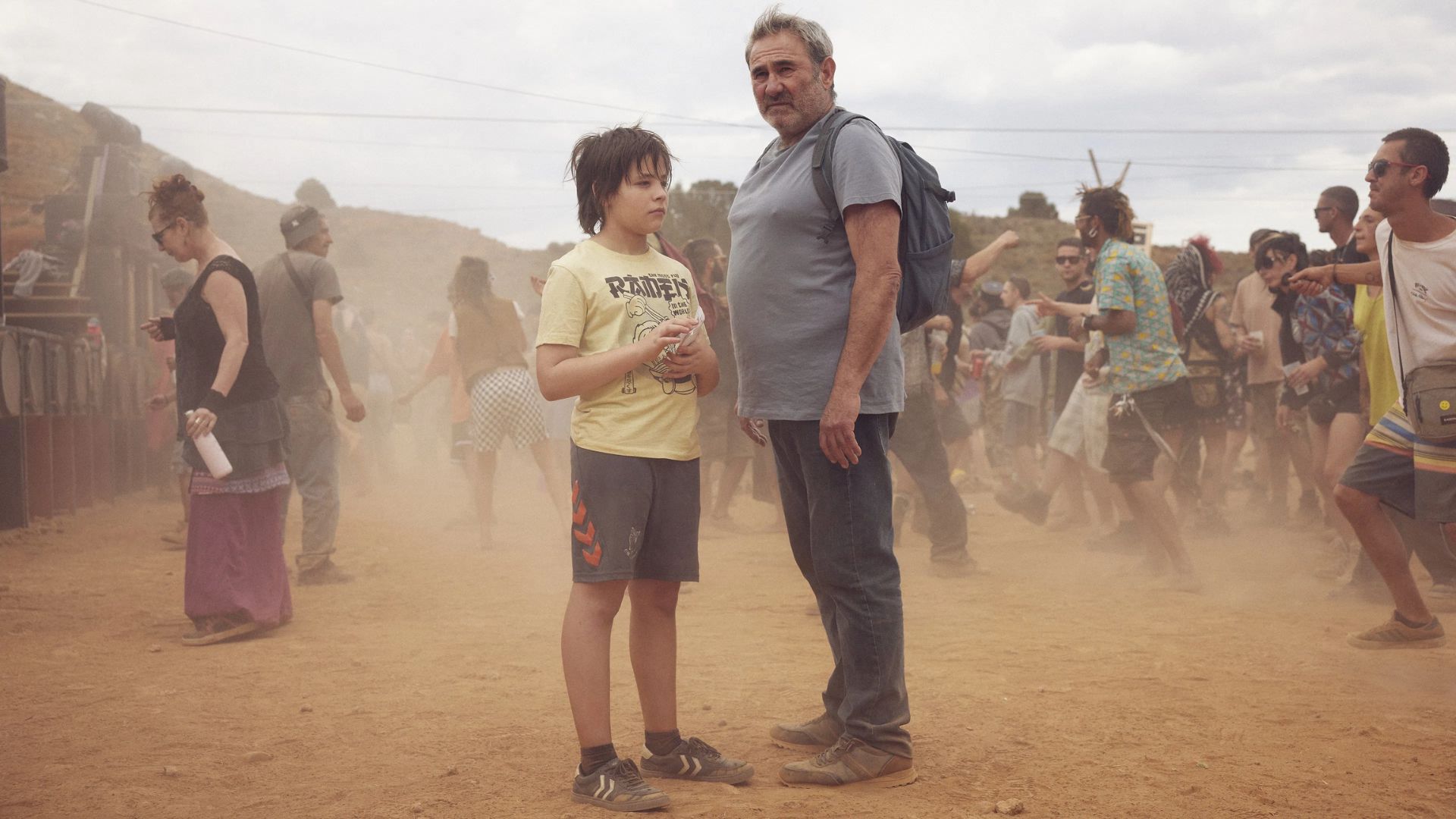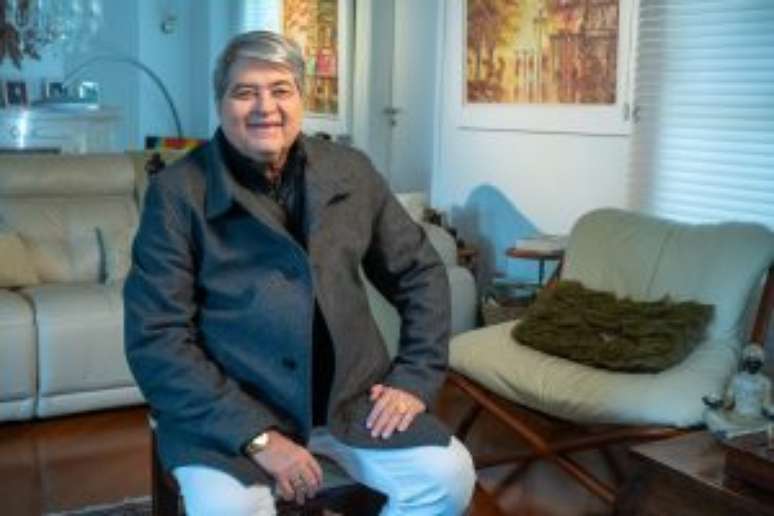Spain’s selection for the 2026 Oscar follows a father and son who arrive at a rave in the mountains of Morocco in search of their missing daughter and sister
There are directors who transform suffering into a provocative sensory experience; others, in mere punishment. Oliver Laxe (What Burns), with Sirātappears to belong to the second group. The film — chosen by Spain to compete for a spot at the 2026 Oscars and shown at the 49th São Paulo International Film Festival — follows a father and a son (played by Sergi López and Bruno Núñezrespectively) on a journey through the Moroccan desert in search of his missing daughter and sister. Accompanied by the dog Kite and by a group of rave-goers, they are sent spiraling towards hell, in a cinema that aspires to be transcendental, but finds only sadism on the road.
Lax opts for the strident: every shot and sound effect is an attempt to punish the viewer. There are those who see this as an attempt to align themselves with an illustrious lineage of cinematic discomfort, of Michael Haneke (The Piano Teacher) a Michel Franco (After Lucia), also passing through Gaspar Noé (Irreversible) and Yorgos Lanthimos (Canine Tooth), but while these directors construct their violence within a coherent dramaturgical structure, Lax It just seems to collect shocks. The result is a work that confuses brutality with depth. Everything sounds calculated to disturb — the mise-en-scène arid, the deafening sound, the gratuitous brutality — but the discomfort never translates into reflection. The desert of Sirāt it is literal and symbolic: an empty landscape where nothing flourishes, not even an idea.
From a formal point of view, the film even starts out promising. The prologue, in which the camera moves slowly between dunes and raves, suggests the Lax contemplative of yesteryear — one interested in capturing the friction between the material world and transcendence, here marked by raves. But this sensory layer is soon swallowed up by an artificial dramaturgy, which forces the viewer to bear the characters’ suffering without offering them density. Each sadistic event that follows — a threat, a death, a dog in danger — functions only as a repetition of the previous ordeal, without variation in intensity or meaning. It’s as if the director believed that increasing the volume of despair was enough to give weight to the narrative.
The comparison with The Fear Train (1977) or Mad Max: Fury Road (2014) is inevitable, but it betrays the film’s real problem: Lax he is not interested in the crossing itself, but in discomfort as an end in itself. The physical and emotional journey of father and son dissolves into a parade of arbitrary trials, of a cruelty that becomes empty through insistence. In the midst of this, a dystopian backdrop appears — military and rumors of a “Third World War” — that seems glued to the plot just to justify the chaos and contemporary nature of the story. None of this, however, is explored convincingly. The supposed collapse of the outside world never dialogues with the characters’ intimate drama; it’s just noise, a lazy frame for the private hell the film wants to display.
This disconnect becomes more glaring in the second half, when Lax abandons the initial atmospheric minimalism and gives in to total destruction — of bodies, of logic, of self-interest. The characters cease to exist as people and become instruments of emotional torture. There are those who read this as an allegory about contemporary humanity, about nihilism and barbarism, but the film does not have the philosophical density to support such ambition. His existentialism sounds like a roadside bar: “things happen like this because the world is heading that way”, the script seems to say, while the viewer is subjected to yet another torture.
At the end, Sirāt it is a journey towards nothingness — an exercise in style that, in trying to represent pain, ends up offering nothing but sadism. The desert, which seems to be a kind of metaphor for purging or rebirth, becomes a mirror of the film itself based on the director’s choices: emptiness. Lax he films suffering with devotion, but without purpose. The viewer is left to decide whether to abandon the trip — and there are those who actually do — or whether to allow themselves to be whipped by this emotional and masochistic ordeal.
READ ALSO: 49th São Paulo Film Festival: Follow Rolling Stone Brasil’s coverage
-
49th São Paulo International Film Festival
-
sp show
-
Oliver Laxe
-
oscars 2026
-
Sirât
Source: Rollingstone
Earl Johnson is a music writer at Gossipify, known for his in-depth analysis and unique perspective on the industry. A graduate of USC with a degree in Music, he brings years of experience and passion to his writing. He covers the latest releases and trends, always on the lookout for the next big thing in music.







